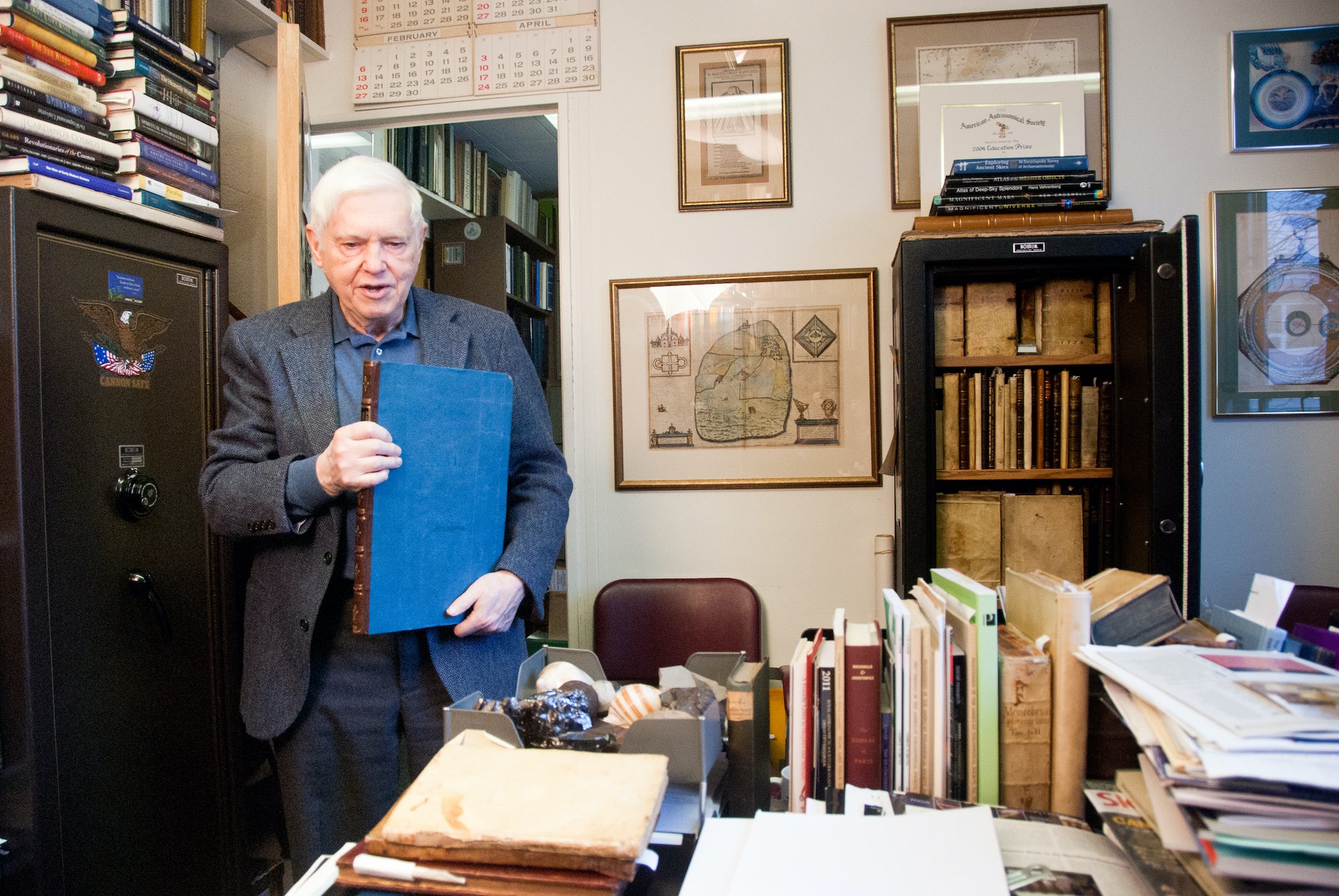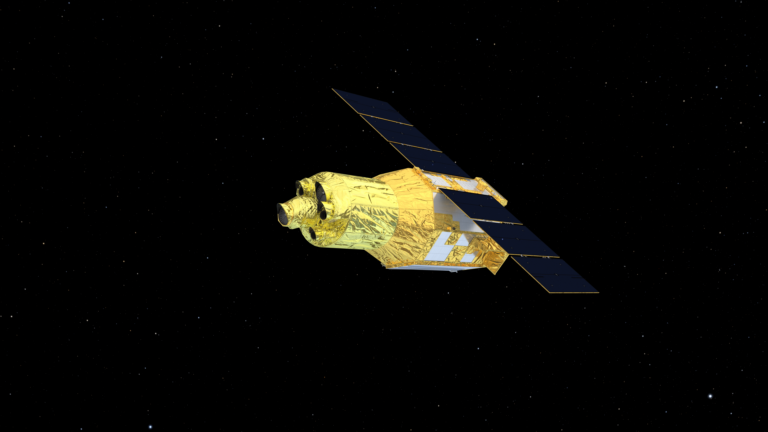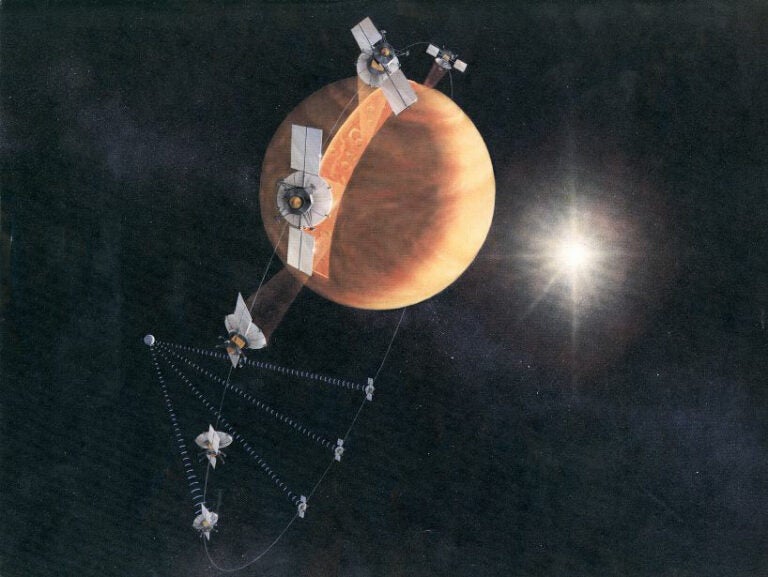
Known for his expansive collection of old books and a depth of astronomical knowledge on everything from Copernicus to Pluto’s planethood, Owen Gingerich passed away May 28 at the age of 93 near Cambridge, Massachusetts.
Gingerich was born on March 24, 1930, in Washington, Iowa. He received his doctorate from Harvard University, where he was eventually appointed to both the astronomy and history of science departments as a professor and taught for decades. According to Harvard, his class “The Astronomical Perspective,” a core science course for non-scientists, was “the longest-running course under the same management” in the university’s history when he retired in 2000. After retiring, he served as a professor emeritus of astronomy and the history of science at Harvard and became senior astronomer emeritus at the Smithsonian Astrophysical Observatory as well.
During his tenure, he co-authored two papers on standard models for the solar atmosphere, but his most well-known works were his studies of Nicolaus Copernicus, which he chronicled in his ironically titled The Book Nobody Read: Chasing the Revolutions of Nicolaus Copernicus (Penguin Books, 2005). In it, Gingerich detailed his three-decade, cross-continental quest to read 600 original copies of De revolutionibus by Copernicus, who in the 16th century proposed the idea of a heliocentric universe and influenced Johannes Kepler and Galileo Galilei’s astronomical findings.

His work garnered praise from the government of Poland (the modern-day state that encompasses the region where Copernicus was born, died, and lived most of his life), which awarded Gingerich an Order of Merit in 1981. Around the same time, an asteroid was also named in his honor, 2658 Gingerich, a 7-mile-wide (12 kilometers) object located in the outer asteroid belt.
Gingerich wrote and published other books, including God’s Universe and The Eye of Heaven: Ptolemy, Copernicus, Kepler. He spoke often of his belief that God and science could be interconnected and was the founding member of the Mennonite Congregation of Boston.
In a twist of fate, Gingerich was born just a month after the discovery of Pluto — a body that would later became a hot topic of discussion for the historian roughly 75 years later. When the International Astronomical Union (IAU) debated whether Pluto was a planet in 2006, Gingerich was the chair of the IAU’s planet-definition committee. Under his leadership, the committee drafted a proposal that would have included Pluto as a planet and expanded the category to other large, round objects in the asteroid and Kuiper belts. Gingerich argued that the label the IAU ultimately awarded to Pluto — a “dwarf planet” but not an actual planet — was confusing and later said that the IAU should never have tried to define the word “planet” in the first place.
Gingerich was renowned for his abundance of rare books; a 2018 article in the Harvard Crimson remarked that his office was “a book collector’s sanctum” with shelves “crowded with ancient, valuable books and tchotchkes.” But he was also an avid collector of shells, fossils, and minerals, and was a longstanding member of the Boston Malacological Club.
He was survived by wife Miriam; sons Jonathan, Mark, and Peter; and grandchildren Philip, Yasmin, Dilara, and great-grandson Jens.









